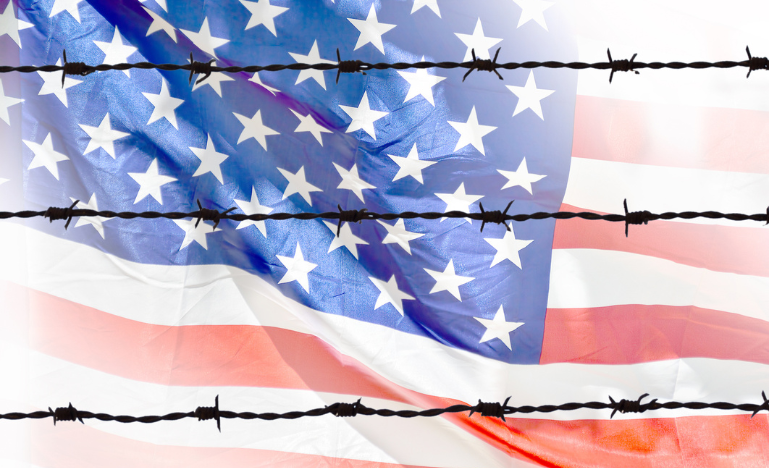Lawyers advised to travel light
If you’re going to the United States, it’s best to guard your data

Amid tensions between Canada and the United States, experts recommend that lawyers travelling there take extra precautions to safeguard personal and confidential information.
In a recent travel advisory, the Canadian government warned that travellers may face additional scrutiny at the American border, including intrusive searches of their electronic devices.
The advisory, released April 4, warned that American border agents are entitled to search electronic devices, including cellphones, computers and tablets and “don’t need to provide a reason when requesting a password to open your device.”
This warning prompted the Law Society of British Columbia to remind members that these circumstances pose a particular risk to lawyers travelling internationally with cellphones and laptops they use in their practice.
“If your electronic device is searched at a border crossing, a client’s information may be compromised, engaging issues with privilege and confidentiality,” the Law Society said in a statement.
It advised that lawyers should leave their electronic devices at home when travelling to the United States, but acknowledged that this isn’t always practical, especially when travelling for work.
“Less is more,” says Christiane Saad, a privacy expert from the University of Ottawa and director of its French Law Practice Program.
“Don’t bring anything that you don't need, either devices or data.”
She recommends that lawyers disconnect apps on their electronic devices—including email apps—prior to travelling and ensure their cellphones and laptops do not contain sensitive or privileged information.
“That way, when you travel, you are not receiving confidential emails that will trigger additional questioning at the border.”
While worries about privacy when crossing the border are not a new issue for lawyers, given the current climate, Saad says they’ve certainly increased, prompting some people to avoid U.S. travel or delay it as long as possible.
“I know quite a few people who have just decided they are not travelling to the United States for the time being,” says David Fraser, a partner at McInnes Cooper in Halifax who specializes in technology and privacy.
“What we’re hearing … is that the amount of scrutiny of electronic devices appears to be increasing for people entering the United States. It’s my understanding that things are simply much less predictable.”
He says Canadians should remember that when they enter another country, they don’t have the rights they’ve become accustomed to under the Charter of Rights and Freedoms.
“When you’re entering another country, even if you have a visa, the officer that you encounter has a fair amount of discretion in determining your admissibility,” Fraser says.
“There’s always a significant power imbalance, and we’re hearing reports of individuals who are not just turned away at the border, but are arrested and sent to a detention facility awaiting formal deportation.”
For that reason, lawyers travelling across any border should be cognizant of reducing information exposure on any device as much as possible.
“Ideally, remove all privileged information from your electronic devices and don’t travel with it,” Fraser says.
“If it’s more convenient to have a burner phone that starts from scratch, do that. Or you can factory reset your phone before crossing the border and reinstall your apps on the other side using a secure internet connection.”
If this is not possible, he recommends travellers keep a minimum number of apps on their phone at the border, allowing them to access client materials through cloud services.
Fraser cautions that border officers can require travellers to hand over their electronic devices and, in some locations, to unlock them.
“Always make sure that everybody you’re dealing with knows that you’re a lawyer and that you object on the record,” he says.
“There’s always going to be an obligation to assert your clients’ privilege as much as you can.”
It’s also wise to plan travel in advance, particularly when travelling to multiple countries, and to understand the protocols at their borders. Fraser advises lawyers to keep written notes with contact information for legal assistance in the country they are travelling to and their law society, so they have it handy should they need it.
Similarly, Saad recommends that lawyers travelling to the United States connect with American lawyers who specialize in privacy ahead of time so they can contact them in case of an issue at the border. It’s also worth checking with your law society’s guidelines before travelling.
Bringing hard copies of documents that show your professional credentials may help avoid unlocking electronic devices to prove them to border officials.
Saad says even lawyers at small law firms must be aware of privacy concerns.
“Don’t underestimate the size of your organization. Just because you’re not working with a big law firm or a major corporation, doesn’t mean your client doesn’t have critical, sensitive information,” she says.


